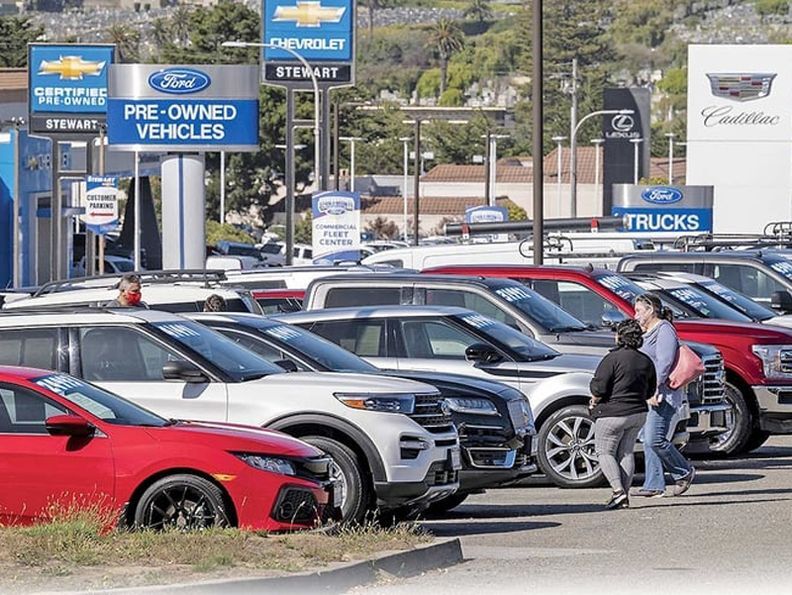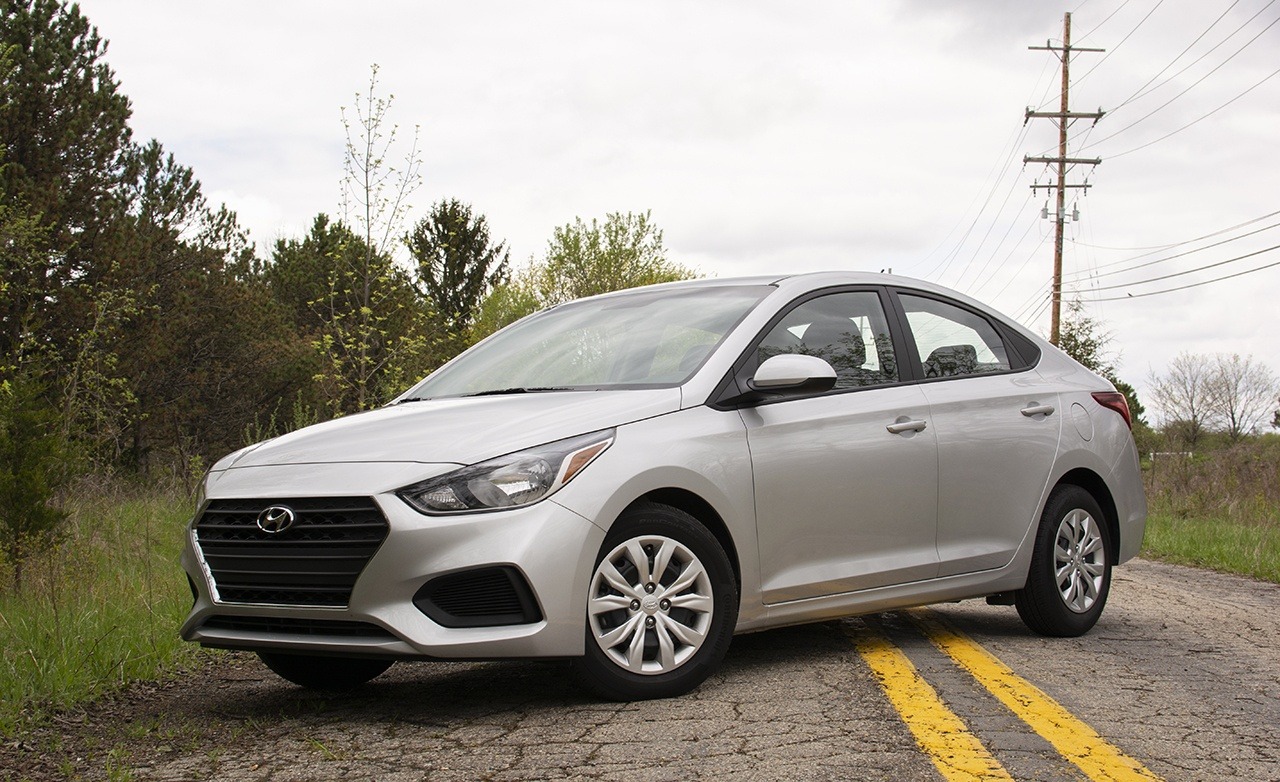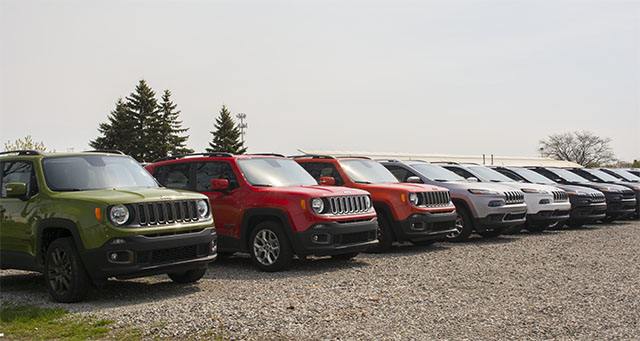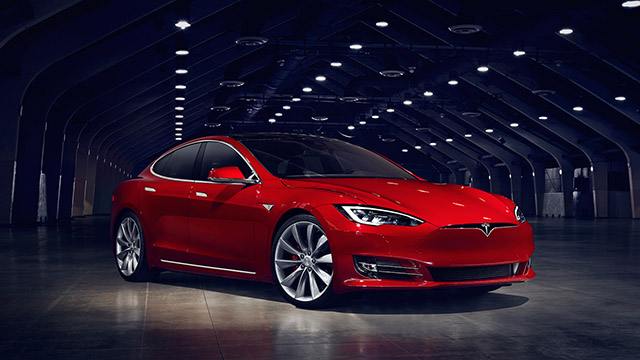Search the Community
Showing results for tags 'nada'.
-
The Federal Trade Commission (FTC) created a rule last year to help consumers against unfair practices and fees. Known as the Combating Auto Retail Scams (CARS), this was supposed to take effect on July 30th, 2024. Now, lobbyists were able to get this paused indefinitely. This new development of CARS was fought by the National Automotive Dealers Association (NADA) and the Texas Automobile Dealers Association. They filed a petition with the Fifth Circuit Court of Appeals and challenged the law. The Court agreed with NADA and the Texas Automobile Association to stop CARS from happening. One of the biggest issues with this legal battle concerns if the FTC has the jurisdiction to impose this. Both dealership groups called the rule "an abuse of discretion" which they used in court to stop the rule from being implemented. The FTC agrees, saying the rule "does not impose substantial costs, if any" for non-shady dealerships. They guarantee a more even playing field for consumers and dealerships by eliminating hidden costs and junk fees. If the courts decide to rule for the FTC, the FTC thinks the CARS rule will be delayed by a few months. This means CARS could be enacted before 2025. Even with the FTC fighting and possibly winning this, dealerships have pressured Congress to make laws removing the FTC from regulating car sales. If a dealership breaks the rules, they would have a violation of $50,120. View full article
- 3 replies
-
- dealerships
- ftc
-
(and 2 more)
Tagged with:
-
The Federal Trade Commission (FTC) created a rule last year to help consumers against unfair practices and fees. Known as the Combating Auto Retail Scams (CARS), this was supposed to take effect on July 30th, 2024. Now, lobbyists were able to get this paused indefinitely. This new development of CARS was fought by the National Automotive Dealers Association (NADA) and the Texas Automobile Dealers Association. They filed a petition with the Fifth Circuit Court of Appeals and challenged the law. The Court agreed with NADA and the Texas Automobile Association to stop CARS from happening. One of the biggest issues with this legal battle concerns if the FTC has the jurisdiction to impose this. Both dealership groups called the rule "an abuse of discretion" which they used in court to stop the rule from being implemented. The FTC agrees, saying the rule "does not impose substantial costs, if any" for non-shady dealerships. They guarantee a more even playing field for consumers and dealerships by eliminating hidden costs and junk fees. If the courts decide to rule for the FTC, the FTC thinks the CARS rule will be delayed by a few months. This means CARS could be enacted before 2025. Even with the FTC fighting and possibly winning this, dealerships have pressured Congress to make laws removing the FTC from regulating car sales. If a dealership breaks the rules, they would have a violation of $50,120.
- 3 comments
-
- dealerships
- ftc
-
(and 2 more)
Tagged with:
-
Ask Peter Welch, the CEO of the National Automobile Dealers Association (NADA) what worries him the most, he'll admit that it is average consumers getting priced out of new cars. He admitted this yesterday at the Automotive News World Congress in Detroit. Welch said that the latest figures he has seen - through October of last year - reveal the average retail price of a new car climbing to a new high of $35,366. The average monthly payment is hovering at $538, and interest rates have climbed to an average of 5.76 percent (new) and 9 percent (used). Longer loan terms are becoming common, with the average length standing at 64.3 months. "You know, people buying $55,000 pickup trucks with $1,000-a-month payments — I've never seen it. A lot of people don't think that's sustainable," said Welch. "That is going to put a giant dent in the SAARs and it almost makes me wonder if at some point we're going to see another Henry Ford," offering new and more affordable vehicles. Aside from more people buying more expensive trucks and utility vehicles, Welch said other reasons for the increases in prices come down to new fuel economy standards and safety equipment. He sees new car prices rising towards $40,000 with $800 monthly payments. On a slightly positive note, NADA predicts that 16.8 million light vehicles will be sold in 2019. While down from 17.3 million in 2018, Welch notes there are some positive economic indicators "such as high employment rates, a solid GDP and a healthy economy overall." Source: Automotive News (Subscription Required) View full article
- 71 replies
-
- 1
-

-
- affordable
- ceo
-
(and 3 more)
Tagged with:
-

NADA's CEO is Concerned About Consumers Being Priced Out
William Maley posted an article in Automotive Industry
Ask Peter Welch, the CEO of the National Automobile Dealers Association (NADA) what worries him the most, he'll admit that it is average consumers getting priced out of new cars. He admitted this yesterday at the Automotive News World Congress in Detroit. Welch said that the latest figures he has seen - through October of last year - reveal the average retail price of a new car climbing to a new high of $35,366. The average monthly payment is hovering at $538, and interest rates have climbed to an average of 5.76 percent (new) and 9 percent (used). Longer loan terms are becoming common, with the average length standing at 64.3 months. "You know, people buying $55,000 pickup trucks with $1,000-a-month payments — I've never seen it. A lot of people don't think that's sustainable," said Welch. "That is going to put a giant dent in the SAARs and it almost makes me wonder if at some point we're going to see another Henry Ford," offering new and more affordable vehicles. Aside from more people buying more expensive trucks and utility vehicles, Welch said other reasons for the increases in prices come down to new fuel economy standards and safety equipment. He sees new car prices rising towards $40,000 with $800 monthly payments. On a slightly positive note, NADA predicts that 16.8 million light vehicles will be sold in 2019. While down from 17.3 million in 2018, Welch notes there are some positive economic indicators "such as high employment rates, a solid GDP and a healthy economy overall." Source: Automotive News (Subscription Required)- 71 comments
-
- affordable
- ceo
-
(and 3 more)
Tagged with:
-
Since President Donald Trump was elected, automakers have been pushing for him to relax the stricter fuel economy and emission regulations coming into effect by 2025. Now there is another group calling for this. At the National Automobile Dealers Association (NADA) annual conference, dealers voiced support for the new president ease the upcoming regulations. "You inflate the price of the vehicle and a car that was maybe within reach of being affordable now may not be," said NADA's new chairman, Mark Scarpelli to Reuters. Scarpelli argues that the tech needed to improve fuel economy adds $1,500 to $3,000 to the price of a vehicle. He also says that a "different phase-in period" for the regulations would be welcomed. The big argument dealers are using is the regulations would cause automakers to build vehicles that buyers aren't interested in. "They've got to make regulation more in line with consumer demand so (the automakers) can build what people want and not what the government’s telling them they have to build," said Pete DeLongchamps, vice president of Group 1 Automotive Inc. Source: Reuters View full article
- 10 replies
-

Dealers Want President Trump To Ease Fuel Economy Standards
William Maley posted an article in Automotive Industry
Since President Donald Trump was elected, automakers have been pushing for him to relax the stricter fuel economy and emission regulations coming into effect by 2025. Now there is another group calling for this. At the National Automobile Dealers Association (NADA) annual conference, dealers voiced support for the new president ease the upcoming regulations. "You inflate the price of the vehicle and a car that was maybe within reach of being affordable now may not be," said NADA's new chairman, Mark Scarpelli to Reuters. Scarpelli argues that the tech needed to improve fuel economy adds $1,500 to $3,000 to the price of a vehicle. He also says that a "different phase-in period" for the regulations would be welcomed. The big argument dealers are using is the regulations would cause automakers to build vehicles that buyers aren't interested in. "They've got to make regulation more in line with consumer demand so (the automakers) can build what people want and not what the government’s telling them they have to build," said Pete DeLongchamps, vice president of Group 1 Automotive Inc. Source: Reuters- 10 comments
-
One group that has been fighting tooth and nail against Tesla and their direct sales model is the National Automobile Dealers Association. With Tesla filing a federal lawsuit against the state of Michigan over a law banning direct sales, NADA Chairman Jeff Carlson has made some comments as to why Tesla's direct sales model is bad. The Detroit Free Press reports that Carlson said the direct sales model is bad for consumers because it would lead to higher prices. Competition between dealers is a good thing for consumers. In a study commissioned by NADA and done by Phoenix Center for Advanced Legal and Economic Public Policy Studies, competition between dealers lead to an average of $700 in price reduction. "Every state has to look to their consumer and decide what’s best for them. Either they can continue to support the franchised dealers' discount of up to $700 ... or, the choice for the policy makers is they can offer the consumer a vertically integrated model that prices vehicles at retail," said Carlson. "The public policy makers are going to go to the consumers and say which (model) do you want? The discounted product? Or the product at retail?" Carlson also pointed out a memo that Tesla CEO Elon Musk sent out to all employees saying that they need to abide by the company's “no negotiation and no discount policy.” It should be noted that policy that Carlson used as an example only pertains to new vehicles. Vehicles that were used as floor models, test drives, or were damaged in transit are allowed to be discounted. We're to jump in here now and bring a little editorial. Carlson's argument of using price to say why the franchise model is better is ok. But there is another part that either Carlson forgot or neglected to mention - service. There is a reason why people don't like to go to dealerships. They don't feel like they are being treated as a person, more of a number for this month. You see in various ways from dealer markups on popular models, pushing rust proofing or extended warranties during the sales process, and we're only scratching the surface. Yes, Tesla may be a more expensive option. But at least you don't feel that you're being pressured to buy something. Before someone jumps in and says 'not all dealerships are like this' or some variation of it, we know. The problem is those dealers are so few. It's basically trying to find a strand of hay in a bushel of needles. Source: Detroit Free Press, Automotive News (Subscription Required)
- 5 comments
-
- comments
- direct sales
-
(and 3 more)
Tagged with:
-
One group that has been fighting tooth and nail against Tesla and their direct sales model is the National Automobile Dealers Association. With Tesla filing a federal lawsuit against the state of Michigan over a law banning direct sales, NADA Chairman Jeff Carlson has made some comments as to why Tesla's direct sales model is bad. The Detroit Free Press reports that Carlson said the direct sales model is bad for consumers because it would lead to higher prices. Competition between dealers is a good thing for consumers. In a study commissioned by NADA and done by Phoenix Center for Advanced Legal and Economic Public Policy Studies, competition between dealers lead to an average of $700 in price reduction. "Every state has to look to their consumer and decide what’s best for them. Either they can continue to support the franchised dealers' discount of up to $700 ... or, the choice for the policy makers is they can offer the consumer a vertically integrated model that prices vehicles at retail," said Carlson. "The public policy makers are going to go to the consumers and say which (model) do you want? The discounted product? Or the product at retail?" Carlson also pointed out a memo that Tesla CEO Elon Musk sent out to all employees saying that they need to abide by the company's “no negotiation and no discount policy.” It should be noted that policy that Carlson used as an example only pertains to new vehicles. Vehicles that were used as floor models, test drives, or were damaged in transit are allowed to be discounted. We're to jump in here now and bring a little editorial. Carlson's argument of using price to say why the franchise model is better is ok. But there is another part that either Carlson forgot or neglected to mention - service. There is a reason why people don't like to go to dealerships. They don't feel like they are being treated as a person, more of a number for this month. You see in various ways from dealer markups on popular models, pushing rust proofing or extended warranties during the sales process, and we're only scratching the surface. Yes, Tesla may be a more expensive option. But at least you don't feel that you're being pressured to buy something. Before someone jumps in and says 'not all dealerships are like this' or some variation of it, we know. The problem is those dealers are so few. It's basically trying to find a strand of hay in a bushel of needles. Source: Detroit Free Press, Automotive News (Subscription Required) View full article
- 5 replies
-
- comments
- direct sales
-
(and 3 more)
Tagged with:







